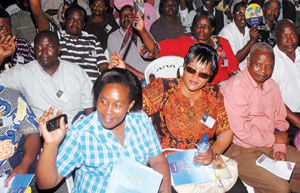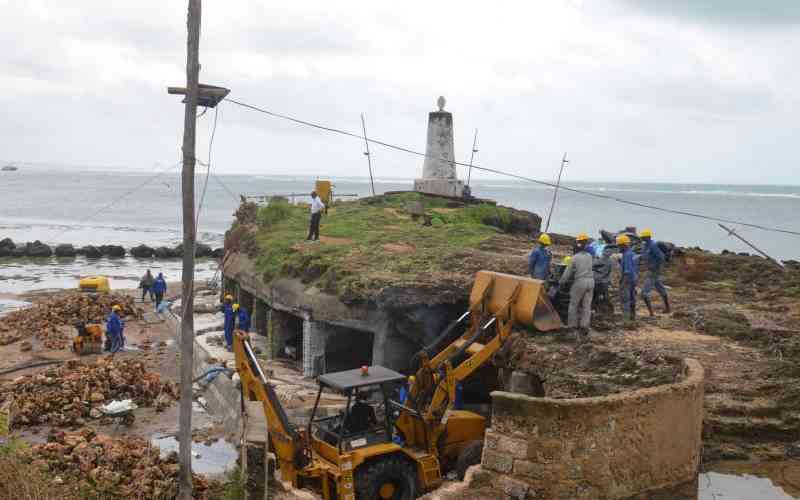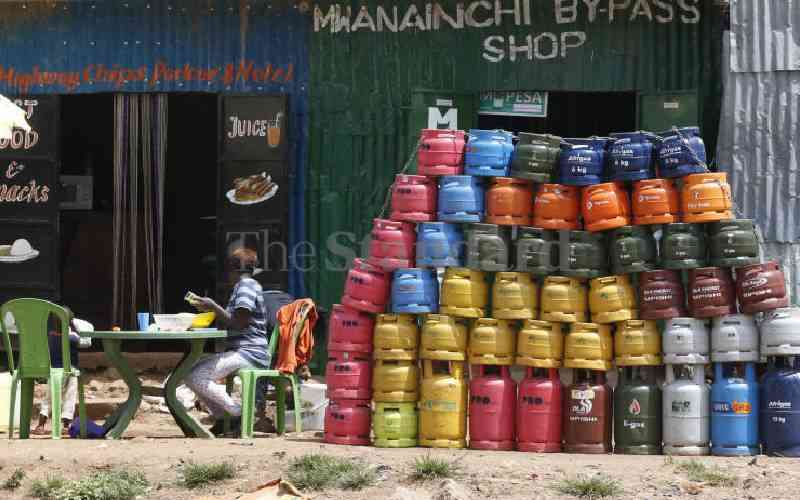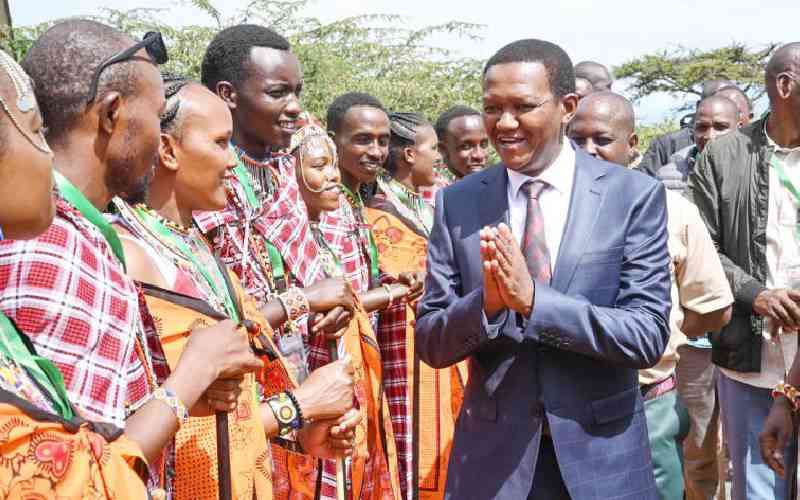By Patrick Beja
Teachers are bracing for radical reforms in the education system to stay in step with the new Constitution now in force.
Provincial Education Directors (PDEs) will be the first to Education permanent secretary James Ole Kiyiapi told 15,000 primary school head teachers meeting in Mombasa yesterday.
This is part of reforms that will completely alter the personnel structure of the Education ministry as well as the decades-old curriculum and education system.
In the new system of Government outlined in the Constitution, Provinces as units of administration will be gone, their places taken up by county level administrations.
The ministry will locate its second tier of top officials after the national level at counties’ headquarters.
"PDEs who will view the move as a demotion will have the option of being transferred to the ministry headquarters," Kiyiapi said.
The reforms will also affect the structure of the Teachers Service Commission (TSC), which is in charge of managing teachers.
According to the new TSC plans, which The Standard exclusively revealed on September 20, each county will have 51 TSC staff, comprising of 28 senior officers and 23 support staff.
The headquarters will provide overall oversight and issue appointment letters for purposes of maintaining integrity of the process, and its harmonisation with the centrally managed payroll. The PS also said the time was ripe to review the curriculum for teaching in schools, and the role of national examinations.
The PS told the conference, which will be officially closed by Prime Minister Raila Odinga today, that the ministry will set up a task force by the end of this month to develop a national policy for education, in line with the new Constitution.
Education Minister Prof Sam Ongeri will gazette members of the task force, numbering 15, who will use sessional papers, past commission reports and existing policy to develop the new education strategy.
"It is a great opportunity to rethink curriculum content and delivery, examinations processes and the various layers of education management," Kiyiapi said.
Task Force
 |
Teachers at the ongoing Kenya Primary School Head Teachers Association Annual Conference in Mombasa, Wednesday. [PHOTO: OMONDI ONYANGO /STANDARD] |
The task force comprising experienced people in the education sector, teachers and members of the private sector is expected to finish its assignment by early next year.
"By December next year, the country should have a national education policy and a Bill to be tabled in Parliament," he said.
The task force is expected to hold consultations in all counties before formulating the Bill. It will address the wastage of children in the existing education system after they fail national examinations. The reforms are expected to provide for options such as talent academies, and junior and senior schools for those who leave primary school. The talent academies will promote talent in sports, music and drama among other skills.
"We want to have an education system that does not condemn children after they fail examinations at an early age, and miss places in form one. There should be options," he said.
The task force will also address the plight of those who score low grades in Form Four and where they can go. Secondary school head teachers have for the last two years been urging the Government to rethink the role of examinations in education.
Last year, they asked the Government to solutions to what they called wastage of majority of those who sit for national exams after they score below average grades.
"The new Constitution presents a perfect opportunity to interrogate our education system, and address the issues Kenyans have complained about over the years," Kiyiapi said.
The envisaged reforms would also seek to end cheating in national examinations as it has been proved that condemning those who fail has encouraged many to engage in the vice.
"The education system has been based on examinations, and this has encouraged cheating. The reforms will address this issue critically," he said.
The PS asked head teachers to take full charge of their schools, and stop interference by external forces like chiefs and councillors.
"You should take charge of your schools and drive change to ensure they are child friendly," he said.
The plans revealed by the PS tally with those of the TSC to have teachers get renewable licences. Yesterday, the PS confirmed that TSC is creating a database of all teachers in both public and private schools. The new regulations will require strict enforcement of teacher registration, and regular reviews of their licences, to maintain the profession at par with others.
A team appointed by TSC secretary and chief executive, Mr Gabriel Lengoiboni, retreated to Kenyatta University early this month for a week, and prepared an Interim Report on realigning TSC with the new laws.
The new Constitution also limits the number of TSC commissioners to not more than nine, as opposed to the current 24.
Yesterday, TSC secretary Gabriel Longoiboni also announced his commission will partner with universities to help teachers get further training.
Kenya Primary Schools Headteachers Association (Kepsha) chairman Joseph Karuga, his secondary schools counterpart Mr Cleophas Tirop and Teachers Service Commission (TSC) chief executive Mr Gabriel Lengoiboni among others, also addressed the conference.
 The Standard Group Plc is a multi-media organization with investments in media
platforms spanning newspaper print operations, television, radio broadcasting,
digital and online services. The Standard Group is recognized as a leading
multi-media house in Kenya with a key influence in matters of national and
international interest.
The Standard Group Plc is a multi-media organization with investments in media
platforms spanning newspaper print operations, television, radio broadcasting,
digital and online services. The Standard Group is recognized as a leading
multi-media house in Kenya with a key influence in matters of national and
international interest.
 The Standard Group Plc is a multi-media organization with investments in media
platforms spanning newspaper print operations, television, radio broadcasting,
digital and online services. The Standard Group is recognized as a leading
multi-media house in Kenya with a key influence in matters of national and
international interest.
The Standard Group Plc is a multi-media organization with investments in media
platforms spanning newspaper print operations, television, radio broadcasting,
digital and online services. The Standard Group is recognized as a leading
multi-media house in Kenya with a key influence in matters of national and
international interest.










